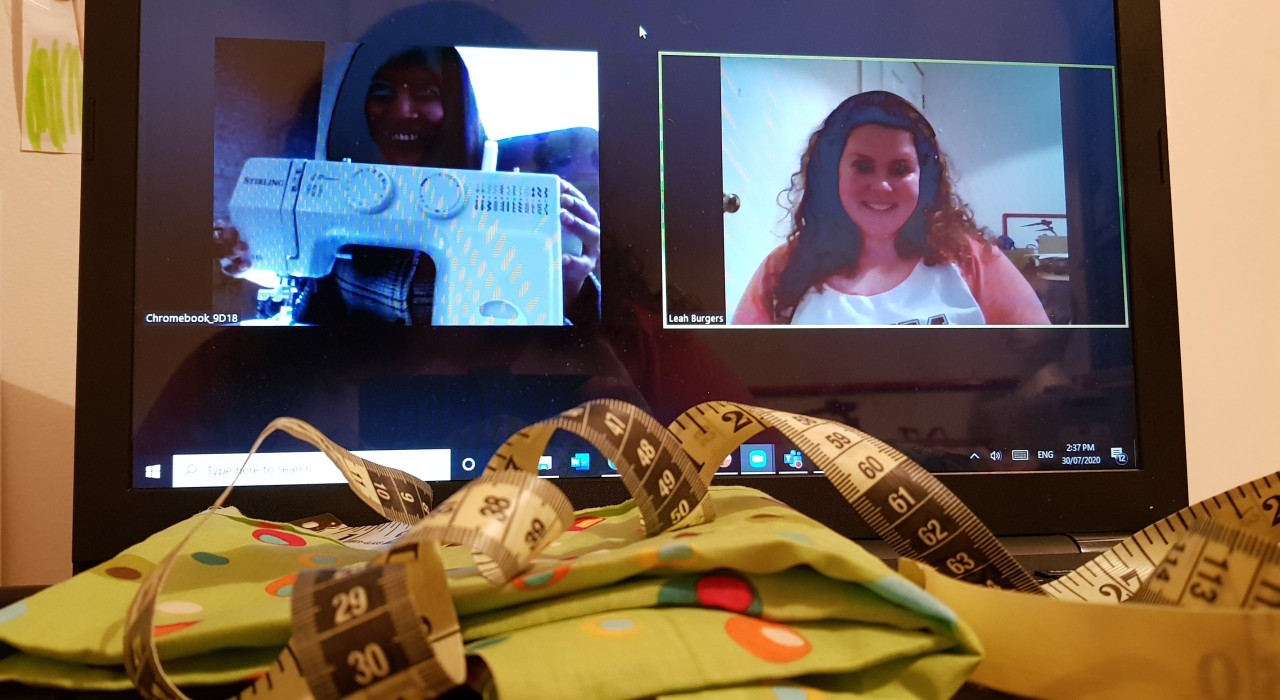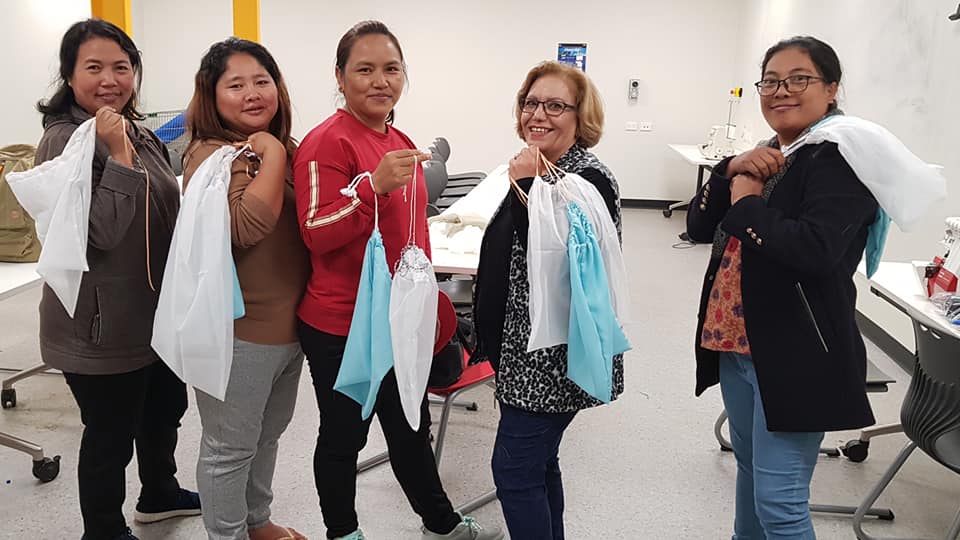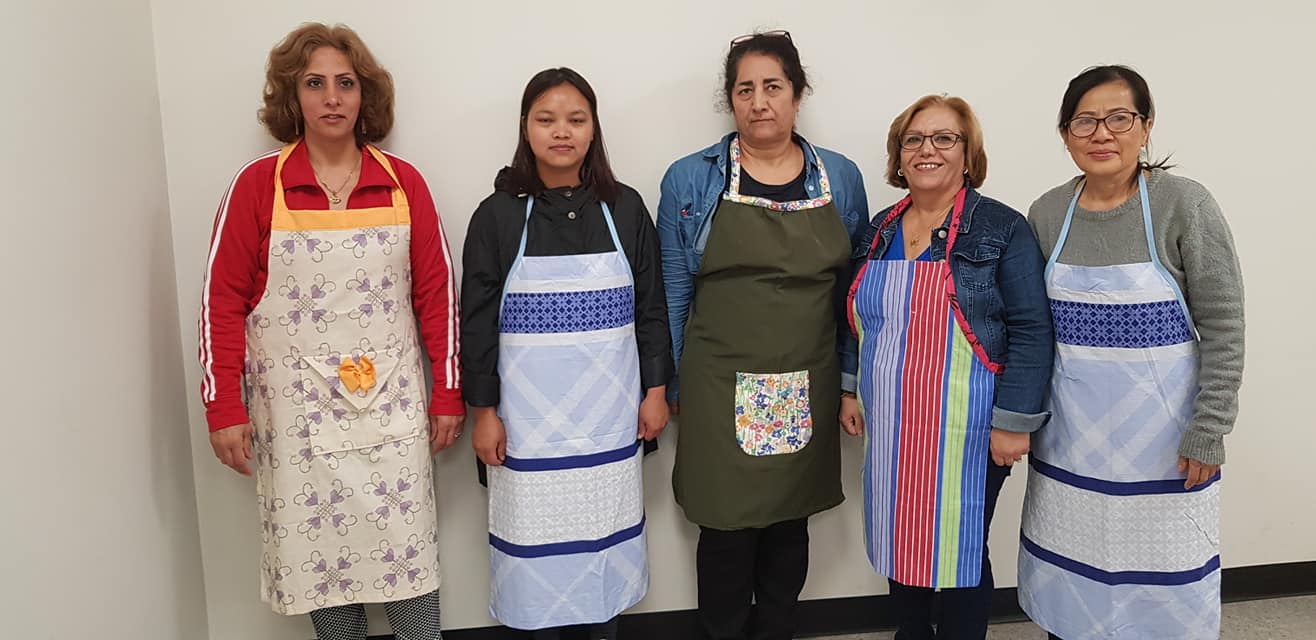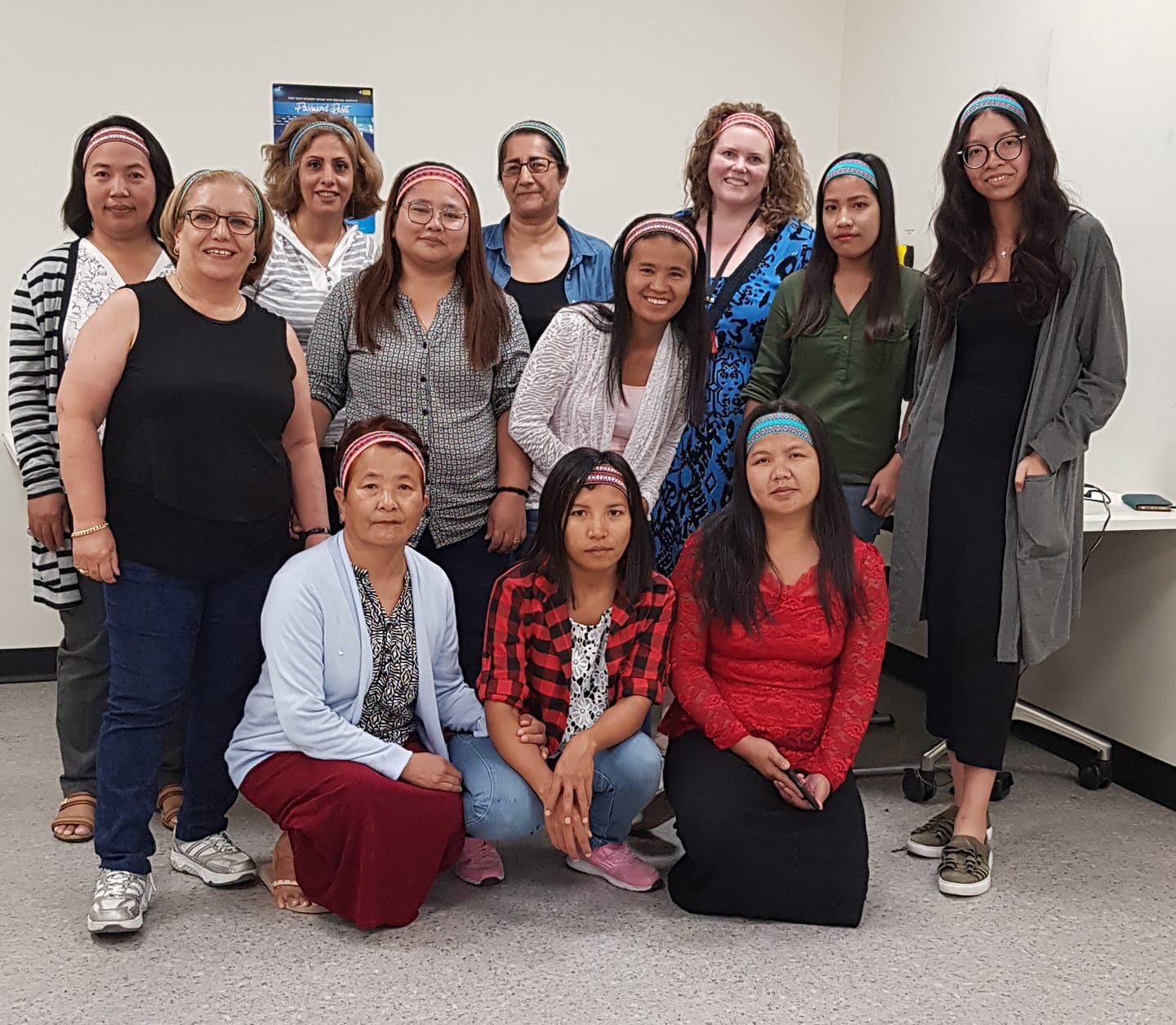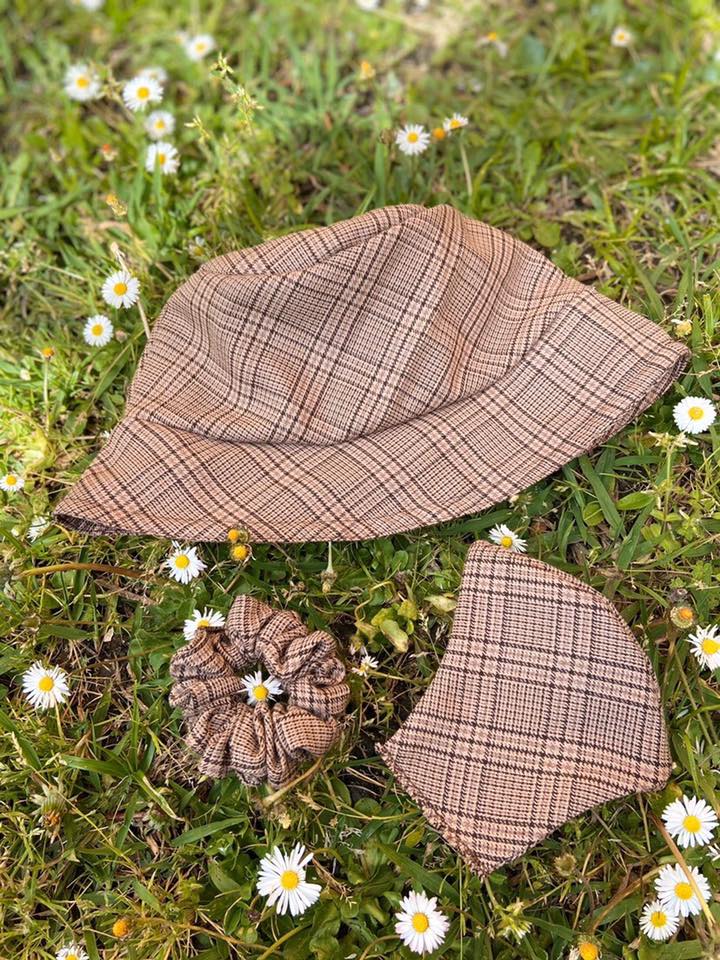News
Using Innovation to Develop English and Business Skills
2020-11-10
AMEP teacher, Leah Burgers, has developed and implemented an innovative English language program to strengthen intercultural capability and cultural diversity. The English and Sewing program for refugee women is unique, combining language skills with sewing and business skills so participants can pathway into paid or self-employment. The program is offered as an elective as part of Box Hill Institute’s Adult Migrant English Program.
Leah was inspired to develop the English and Sewing elective through her experience working with AMEP students who were expected to pathway into a mainstream course or employment. Often, there was no one to help them to make that transition. She also noted that male migrants and refugees tended to secure mainstream employment quicker than females. Migrant women face more barriers, including a lack of formal work experience and education, cultural attitudes to women working, fewer opportunities to network due to family responsibilities, and the affordability and availability of childcare.
Leah said she wanted to be the conduit for these women into Australian life. She said, “These barriers and the fact that the women in the sewing group have very low English skills, meant that their employment prospects could be years away. I wanted to develop a program to fast-track their pathway to employment by providing real-life opportunities and practical step-by-step training.”
While many of the refugee women in Leah’s classes had had very limited or no schooling, their sewing skills were exemplary and could lead to employment in Australia. She decided to use the women’s strengths to develop an English-learning program. She said, “It just takes one person to be the bridge and I wanted to be that bridge for these women.”
COVID-19 provided an unexpected opportunity for Leah’s class. She met with Sister Works, a social enterprise that helps to empower refugee and migrant women by providing a platform to sell handcrafted goods, which was looking for women to make face masks to sell to the public. Five women from the class were offered contracts and, for most of them, it was their first paid employment in Australia.
Leah also organised for some of the women to sell masks as sole traders through local shops including the handmade/vintage market, Market Fair, in Ferntree Gully. The mask-making not only provided an opportunity for the women to practice English skills in an employment and self-employment setting, the women also learnt business and networking skills to gain further employment in the future.
The English and Sewing elective has led to a growth in confidence in the women and a feeling of connection amongst themselves and the wider Australian community. More than half of the women from the initial English and Sewing group have since found paid employment and developed self-employment opportunities.
